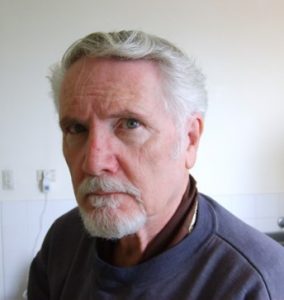As we approach 2024, once again our minds are drawn to speculation about what lies ahead of us. Dr Peter Lewis reflects on the faulty teaching about the Second Coming that takes away our responsibility for following Jesus’ teaching and taking responsibility for all humanity and the place we inhabit.
All the best for the year ahead as we enter our 24th year at the UCFORUM.

No Second Coming
The Second Coming of Christ is an erroneous idea that developed among Christians in the last third of the first century AD. It weakened the assurance that the first Christians had that the kingdom of God had come.
Jesus took on the role of the Suffering Servant as described in Isaiah 52:13-53:12 and in some of the psalms, and as the Messiah giving his life in accordance with that role he expected the kingdom of God to come. In Mark 9:1 he says that some standing with him will not die before they see the kingdom of God come in power, and he was not referring to the Transfiguration.
In some of his parables he describes what the kingdom is like, but they are rather vague and only give hints as to what to expect. Probably Jesus himself had no clear idea of what would happen, but he was confident that people and God would be brought together and he (the Son of Man) would be sitting at the right hand of God, which was what he told the high priest in Mark 14:62.
In Mark 16:19 Jesus is sitting at the right hand of God and the kingdom of God has come for those who believe. During his lifetime the good news was that the kingdom of God was near, but with his ‘sacrifice of love’ it had come.
The first followers of Jesus realized that they were in the kingdom. As Paul or whoever wrote the letter to the Colossians said, “[God] has rescued us from the dominion of darkness and brought us into the kingdom of the Son he loves.” (Col 1:14) In the kingdom God rules with Christ at his right hand, and a way to understand this is to think of human existence as being in both the objective and the subjective. Jesus in the form of the Holy Spirit is prompting our thoughts in the subjective.
The Lord’s Supper is the central sacrament in Christianity, and those who believe in Jesus Christ take him into themselves: the Holy Spirit enters their minds and they are in the kingdom of God. The sacrament is repeated to remind Christians of who Jesus was and what he did. To say that the kingdom has not yet come and to hope for a miraculous event in the sky, as described in 1 Thess 4:13-18, is to deny what Jesus did on the cross.
Some scholars think that 1 Thessalonians was the first letter that Paul wrote, but although some parts might be from his hand, the rest was written much later, probably during or soon after the First Jewish War (66-70 AD). In 2 Cor 3:17b Paul writes that “where the Spirit of the Lord is, there is freedom,” but in 1 Thess 5:12 it is written that Christians have people over them in the Lord to admonish them. In 1 Thess 2:16 the author says that the wrath of God has come upon the Jews. Surely this is a reference to their defeat in the Jewish War.
In 1 Cor 15:24-26 Paul talks about the end of time when Christ’s reign has been successful and he hands over the kingdom to God the Father. This is a different situation from the Second Coming as described in 1 Thess 4:13-18, which was perceived as imminent.
To understand how the idea of an imminent Second Coming arose in the early Church one needs to consider the historical circumstances. When Mark wrote his gospel, which concluded with Jesus sitting at the right hand of God, conditions were stable and Christianity was spreading in the Roman Empire. He was writing before the fire in Rome, which occurred in 64 AD. Nero blamed the Christians and they were horribly persecuted. Then in 66 AD the Jewish War began. It was a terrible time for everyone involved, and it is understandable that some Christians would look to Jesus to come again and save them.
But being in the kingdom of God means responsibility. It means living as Jesus exemplified and commanded us to do, in order to consolidate his reign and change the world. It means living in the present, facing the current circumstances and doing something about them if they are in the dominion of darkness. Burying our heads in the sand, saying that the kingdom has not come and hoping for a Second Coming, is the opposite of what Jesus was about.
In Galatians 2:20 Paul said, “Christ lives in me.” Actually he lives in everyone who believes. With Christ in their hearts Christians are in the kingdom of God, and their task is to increase the kingdom. When times are bad and wars are raging their response should not be to pray for a Second Coming but to be Christ in the world.
Peter E. Lewis 28th December 2023
Peter Lewis was the dux of the Brisbane State High School and studied medicine at the University of Queensland. He went on to become a general surgeon and was a volunteer surgeon in Bangladesh for three years after their terrible war for independence. He was then the supervisor of the Accident and Emergency Centre at the Prince of Wales Hospital in Sydney for five years before becoming the surgeon for the Solom

on Islands. On his return to the Gold Coast he took an interest in palliative care and was the vice-president of Hopewell Hospice for twenty years. For many years he has collected and studied coins relating to the history of Christianity, and since his retirement he has been a volunteer research associate with the Centre for Coins, Culture and Religious History, cccrh.org/ He has always had a strong Christian faith and when in the Solomon Islands he obtained a BD from London University by correspondence, and subsequently a postgraduate diploma in theology from the Brisbane College of Theology. In 2020 he wrote The Ending of Mark’s Gospel: The Key to understanding the Gospels and Christianity, for which Dr Paul Inglis kindly wrote the blurb.
oOo

great article thank you Peter Lewis very clear and a difficult and somewhat divisive and decisive topic
Is it possible the ‘kingdom’ concept is, as it were, the purpose of evolution?
Pierre Teilhard de Chardin, both mystic and scientist, thought so.
Thanks to Dr Peter Lewis for a frank assessment of the Kingdom of God and its advent from someone not, apparently, belonging to ‘the guild of the professional religious’, but from a Christian life of service to humanity.
But really, if the Kingdom of God has been represented by two millennia of Christian history across all its manifestations – and this seems to be the implication of his analysis – a further frank assessment might be that it’s been a failure, albeit a noble failure.
Yet, given the continuing attraction of the figure and teaching of Jesus of Nazareth, it may be that there is ‘something more’ there. What, if not a ‘second coming’ of some kind? Surely it isn’t just ‘pie in the sky’, is it?
Any suggestion that Christianity is on track to fundamentally change the way we humans manage our world seems laughable in our dysfunctional 21st Century! Oh yes, I know “Sarah laughed”, but really? And Tom Holland’s Dominion might be a response from some historical quarters, but only in a future seen through rosily tinted glasses.
I share your perspective John. However, I think none of this history takes anything from the teaching and example of Jesus, which we manage to distort and trample on. My hope is that he will be rediscovered and put on a firm platform of rational and critical thinking. Admittedly there are many reasons to think otherwise.
John,
Is it your true assessment that
The ‘kingdom of God’ can never, will never… be attained?
That’s a bit sad.
Are you being a tad negative?
Peter, great article. I wholeheartedly agree with the idea that if we can find the kingdom of heaven right here on earth, we become better human beings. We begin to understand how it is to live like Jesus. It is really all we can do in this life as individuals.
Thanks, Paul and Bev, for pointing to the need for hope and to my seemingly negative reaction to Peter’s opinion piece on the advent of ”the Kingdom of God”. I respond in the spirit of opening up some discussion.
I posted my comment to make the point that there is a tendency for critical thinkers (me included – at least I try to be one) to stop the critical process when we have an answer that we like or feel comfortable with. So, as being mostly from the ranks of the church alumni or seekers, we are often happy to live with the rather unrealistic but noble prospect that ‘the church’ has been the Kingdom of God from its beginnings and will ultimately carry the day with more critical thinking and a social gospel.
My hope for some version of ‘the Kingdom’ to come lies partly in my guarded comment that there might be ‘something more’ about Jesus of Nazareth. Given the mountains of doctrine that have been built around that idea and given the wariness about using the “God” word in our circles, I am nevertheless open critically to the idea there might be something/one bigger and smarter than us in our tiny corner of the universe that might play a part in our future.
Indeed, stripped of all the theological terminology, I think (somewhat contrary to Peter’s erudite exposition) that’s what kept the earliest Christians going. And it keeps me going too! So I’m not happy just to sit back, ‘go to church’, ‘be good’ and ‘leave it all to God’. I’ll keep trying to play a part in Jesus’ vision for the future, although I have no illusions as to how miniscule my part has been and might be.
None of our thoughts are superior to those of another person. The critical discourse has room for the full range of perspectives.
John,
I may owe you an apology
for not properly understanding what you wrote.
My own thinking owes a lot to what I understand as the ongoing evolution of both the natural world and humanity.
From ape to human, was a huge step in consciousness. I suspect the next rise in consciousness is on the horizon and has the potential to bring the world
closer to what might be called the’Kingdom of God’.
This is the ‘big picture’ and many would think, given the trials and terrors presently abroad in the world, that it isn’t likely.
I’m still hopeful though.